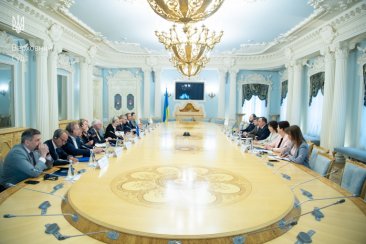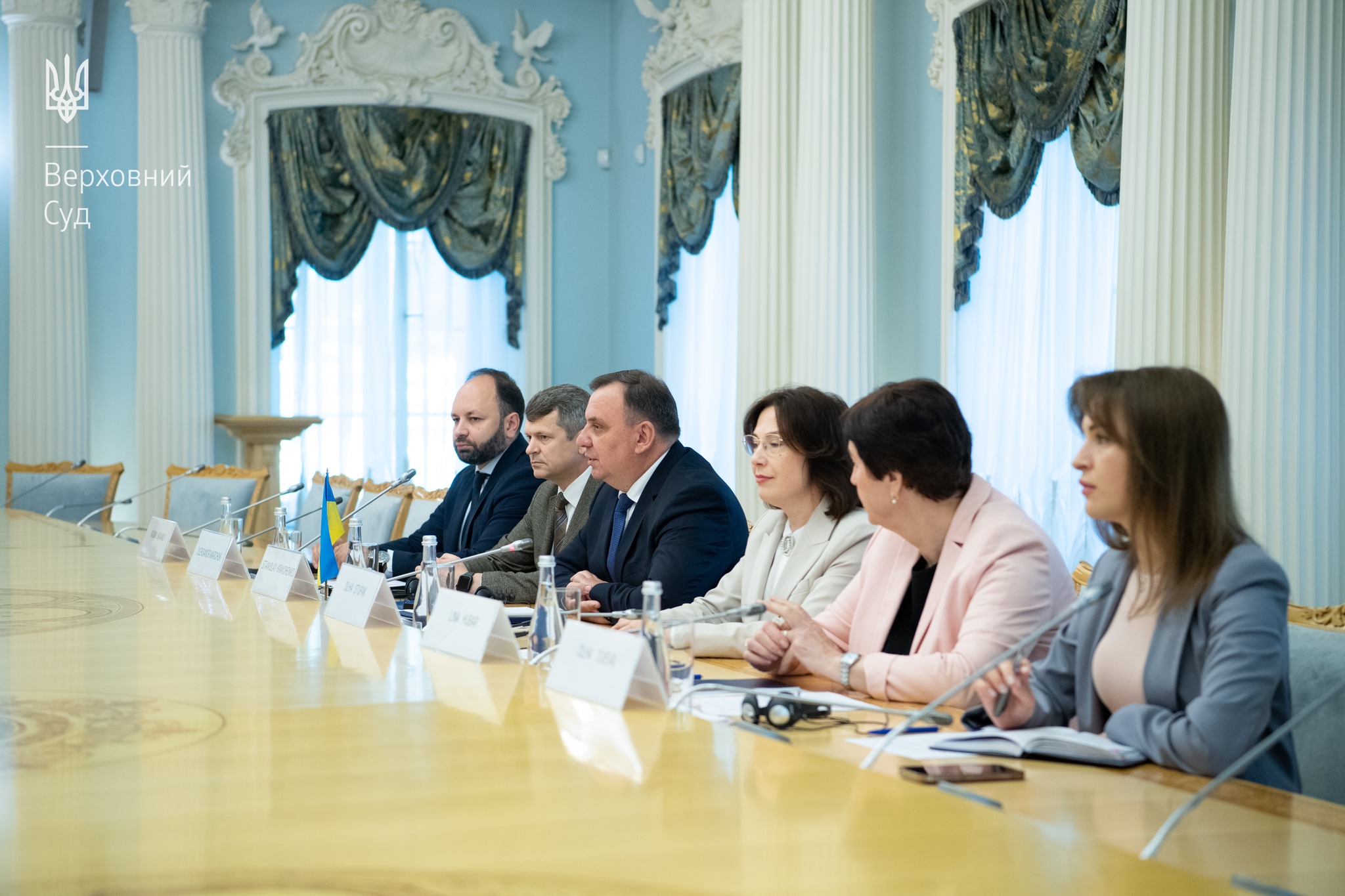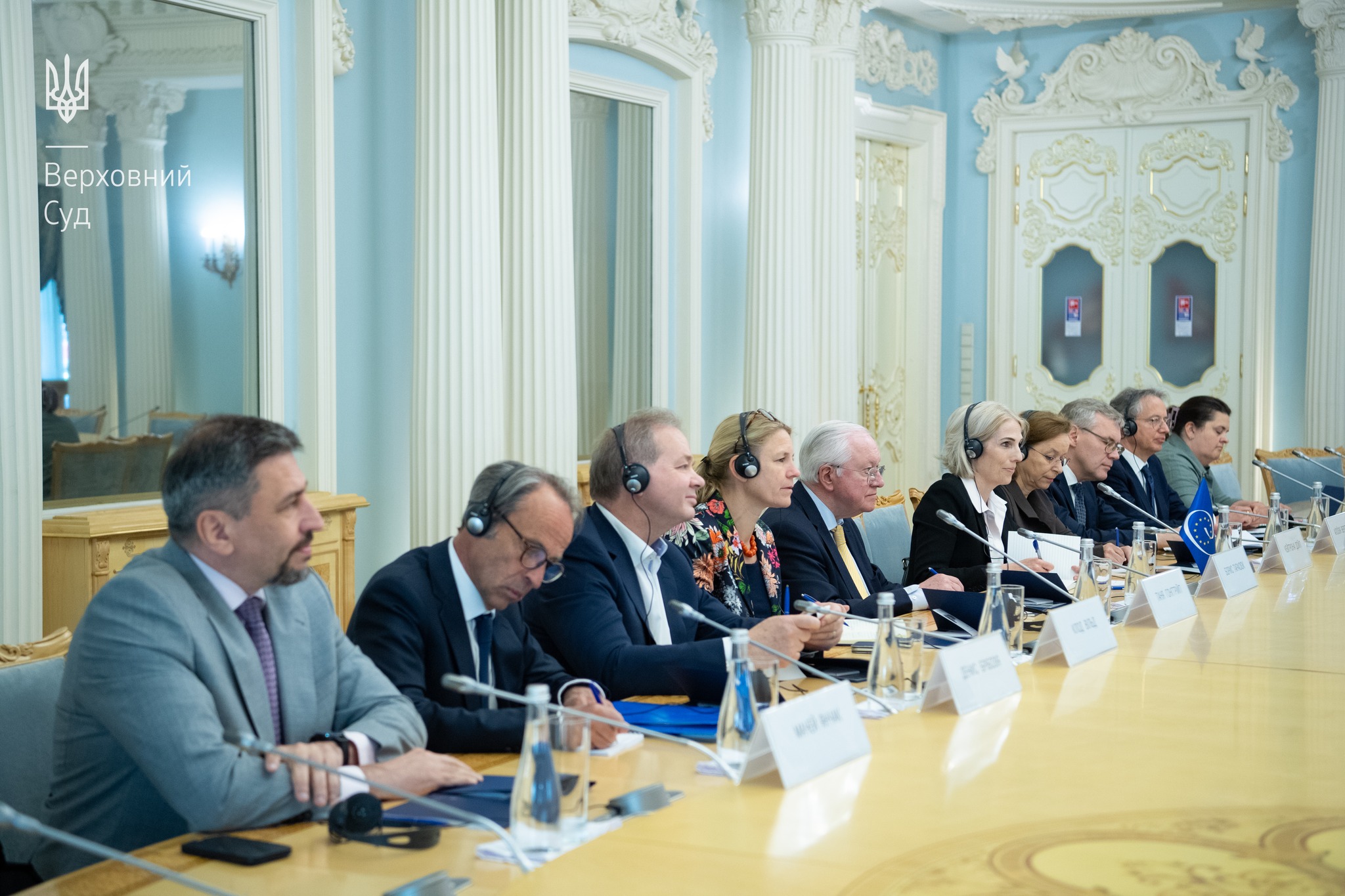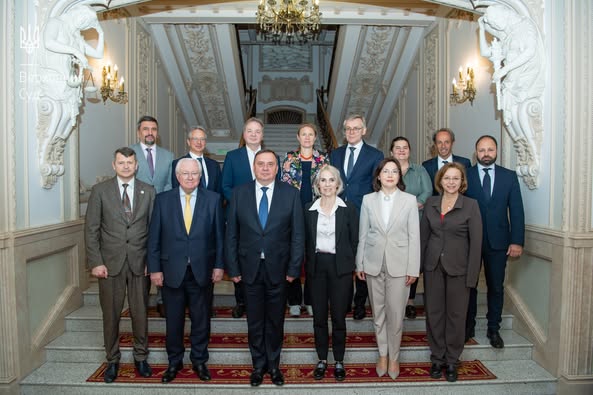Contact center of the Ukrainian Judiciary 044 207-35-46

Today, on 21 May 2025, the Supreme Court was visited by a delegation at the level of Permanent Representatives of the Council of Europe member states to find out about the state of administration of justice in Ukraine and key challenges related to the functioning of the courts.
During the meeting, President of the Supreme Court Stanislav Kravchenko described the overall situation with the administration of justice in Ukraine, outlining the main challenges facing the judicial system in the context of the war. First and foremost, these are security threats to judges, court staff and parties to proceedings and the temporary occupation of a number of settlements, which makes it impossible to ensure judicial control in the respective territory and necessitates a change in the territorial jurisdiction of numerous courts.

The work of the judicial system is also significantly hampered by an excessive workload, which averages more than 4 million proceedings per year, and an acute shortage of judicial personnel.
Despite this, according to the President of the Supreme Court, the judicial system is fully and stably functioning and is making efforts to solve the problems associated with the organisation of court proceedings in wartime.
At the same time, there have been significant changes in the legal regulation of a number of categories of legal relations due to the need to adapt legislation to the realities of wartime. In particular, these are the rules establishing criminal liability for crimes against the foundations of national security, war crimes and military crimes, regulating the activities of anti-corruption bodies, etc.
Stanislav Kravchenko also drew attention to a new category of cases that come before the courts, namely, compensation for damage caused by the war. In addition, the President of the Supreme Court expressed his gratitude to the Council of Europe for its leading role in creating the Register of Damages Caused by the Aggression of the Russian Federation against Ukraine, and also noted the successful implementation of the joint project of the Supreme Court, the ECHR and the CoE - translation of materials posted on the ECHR Knowledge Exchange Platform into Ukrainian. Today, the legal community of Ukraine actively uses this resource, which allows it to harmonise the positions emerging in national law enforcement practice with the standards of the Council of Europe.
The SC President also noted that the Supreme Court is an active participant in the European integration process. Thus, the Roadmap for negotiating Title 23 ‘Rule of Law’ took into account the proposals of the Supreme Court, in particular, on improving the process of selecting judges and creating a new network of courts.
The Ambassador, Permanent Representative of Ireland to the Council of Europe (Chairperson of GR-DEM), Caitríona Doyle, expressed her admiration for the people of Ukraine who are standing up for democratic values and praised the dedicated work of the judiciary in these extremely difficult circumstances. Caitríona Doyle also noted that the issues discussed during the meeting and the problems identified would form the basis for ideas on how to improve the ways in which the Council of Europe can support Ukraine in ensuring the rule of law.

Claude Wild, Permanent Representative of Switzerland to the Council of Europe, expressed his gratitude for the efforts made by the judiciary of Ukraine to uphold the rule of law. According to him, it is very important that the results of this work are properly communicated to the general public, including the international community.
Olha Stupak, Judge of the Grand Chamber of the Supreme Court, noted that this meeting gives confidence in the support of the Council of Europe, which is extremely valuable for the national judiciary, and that joint events are very useful and allow us to learn from the experience of the Council of Europe and to further effectively implement the Council of Europe standards in practice.

The meeting was also attended by Ambassador, Permanent Representative of Austria to the Council of Europe Aloisia Wörgetter, Ambassador, Permanent Representative of the Netherlands to the Council of Europe Tanja Gonggrijp, Permanent Representative of Lithuania to the Council of Europe Andrius Krivas, Ambassador, Permanent Representative of Ukraine to the Council of Europe Borys Tarasyuk, representative of the Secretariat of the Committee of Ministers of the Council of Europe Denis Bribosia, Director of Programme Coordination of the Council of Europe Dr Claus Neukirch, Political Adviser (Republic of Moldova and Ukraine) Olena Lytvynenko, Head of the Council of Europe Office in Ukraine Maciej Janczak, President of the Criminal Cassation Court within the SC Oleksandr Marchuk, First Deputy Chief of Staff - Head of the Department for Analytical and Legal Work of the SC Rasim Babanly, and Head of the Division for International Cooperation of the SC Lina Hubar.